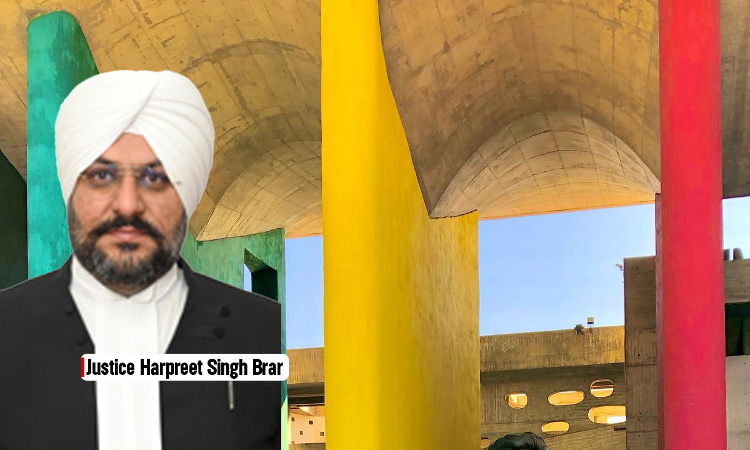- Home
- /
- High Courts
- /
- Punjab and Haryana High Court
- /
- Jail Authorities Must Decide All...
Jail Authorities Must Decide All Parole Pleas Within 4 Months, Convicts Can Initiate Contempt Plea In Case Of Delay: Punjab & Haryana High Court
Aiman J. Chishti
10 July 2025 9:55 PM IST
The Punjab and Haryana High Court has directed that all parole applications must be decided by jail authorities within a strict timeframe of four months and in case of violation of the direction the convicts may initiate contempt proceedings against the concerned officials. The Court underscored the plight of convicts who await responses to their parole applications, facing undue delays even...
The Punjab and Haryana High Court has directed that all parole applications must be decided by jail authorities within a strict timeframe of four months and in case of violation of the direction the convicts may initiate contempt proceedings against the concerned officials.
The Court underscored the plight of convicts who await responses to their parole applications, facing undue delays even in emergency situations and directed to decide such pleas "expeditiously."
Justice Harpreet Singh Brar said, "to spare unwarranted hardship to the applicants and their families, it is further directed that all applications pertaining to temporary release on parole shall be decided by the concerned authority within a period of 04 months from receipt of such application."
The Court highlighted that, in case, these directions are not adhered to without any justifiable cause, the convicts would be at liberty to move an appropriate application under Article 215 of the Constitution of India seeking initiation of contempt of Court proceedings against the officials concerned.
Justice Brar observed that a any unjustified delay in hearing applications for temporary release, which often pertain to situations of emergency, further exacerbates the plight of the convict.
"In fact, the Act specifies certain situations where release for a convict on parole may be warranted. Since the statute itself bestows the convict with the right to be considered for temporary release and enlists circumstances therefor, it is all the more vital to decide such applications expeditiously," added the judge.
These observations were made while hearing the writ petition filed under Article 226 of the Constitution of India read with Section 528 of the Bharatiya Nagarik Suraksha Sanhita, 2023, read with Section 3(1)(d) of the Punjab Good Conduct Prisoners (Temporary Release) Act, 1962 (Act) seeking release of the petitioner on parole for a period of six weeks to meet his family members.
The petitioner was convicted under Narcotic Drugs and Psychotropic Substances Act and sentenced to undergo rigorous imprisonment for a period of 10 years and to pay a fine of Rs.1.00 lakh along with default mechanism.
As per custody certificate, the petitioner had undergone actual sentence of 01 year, 08 months and 24 days.
Counsel for the petitioner had filed an application under the provisions of Section 3(1)(d) of the Act seeking temporary release on parole for eight weeks. However, almost 10 months have passed but no action has been taken on the said application, which is in violation of fundamental rights of the petitioner enshrined under Article 21 of the Constitution of India.
It was further contended that the petitioner is a married person, having two children. Moreover, his mother is suffering from various age related ailments and he has filed the said application to provide emotional support and care to her.
After hearing the submissions, the Court noted that the application of the petitioner for temporary release has been pending before the concerned authorities for the last 10 months.
Temporary Release Preserves Social Bonds and Promotes Good Conduct
The Court observed that the very object of the Act is humanitarian in nature. "Providing opportunities for temporary release ensures that the ties between the prisoner and the society are not severed. Ensuring that the incarcerated have healthy roots in the society greatly assists in their rehabilitation and reintegration. It also incentivizes the inmates to maintain good conduct while in custody, that aids the jail authorities in administration as well," it added.
Authorities Denied Legal Rights Treated Convicts As Second Class Citizen
The judge said that, It is deeply concerning that State agencies display such laxity in dealing with applications for temporary release.
"The administration cannot truly comprehend the value of liberty as perceived by a prisoner, who lives its absence every single day. Such an undisciplined approach is symptomatic of the culture of apathy that has developed on the subject of rights and well being of convicts," it further said.
Adding that denying them their legal right to be considered for temporary release under a statute that has been created for this very purpose, the Court said that, "the authorities have essentially categorized them as second-class citizens."
The Court prima facie opined that, casual and lackadaisical conduct of the concerned authorities cannot be allowed to continue unchecked.
"The incarcerated cannot be expected to live at the whims and fancies of the State and neither does their incarceration entitle the administration to jeopardize their fundamental rights under Article 21 of the Constitution of India," it added.
In the present case, the Court considering that the convict undergone an actual sentence of 01 year, 08 months and 24 days, directed the authorities to decide the application filed by the petitioner seeking temporary release on parole in light of established jurisprudence "preferably within a period of 02 weeks."
Mr. Lakhwinder Singh Lakhanpal, Advocate for the petitioner.
Title: Jaspal Singh @ Jassa v. State of Punjab and others
Click here to read/download the order



